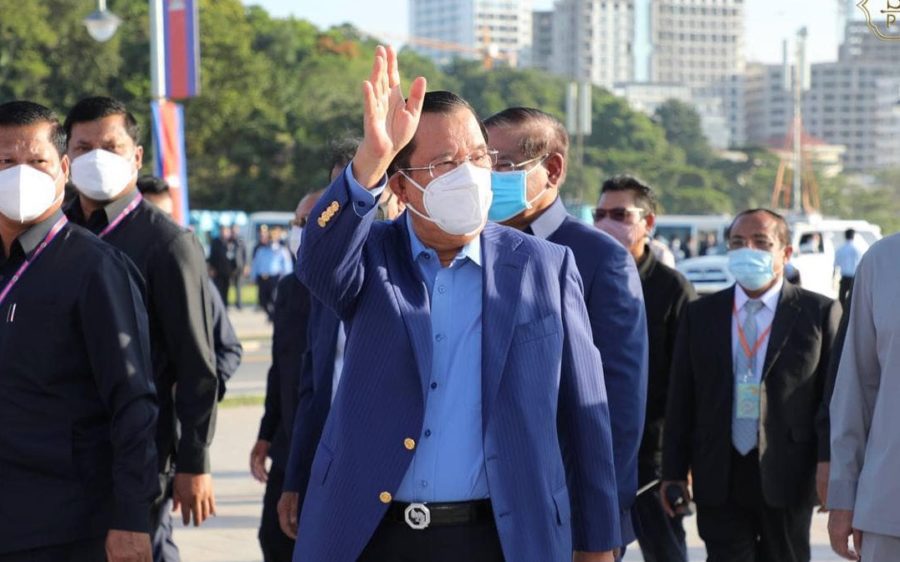Interior Minister Sar Kheng, the lone deputy prime minister who was holding back from publicly endorsing Hun Manet to lead the country, finally issued a support letter late Tuesday.
“I always support the decision of the broad congress and [select] congress of the Cambodian People’s Party in picking Samdech Techo Hun Sen as prime minister for this term and following terms. For the selection of a prime ministerial candidate in the future, I’ll also respect the decision of the Cambodian People’s Party led by samdech techo as president.”
The note, posted to Kheng’s Facebook page Tuesday night with a CPP letterhead but without his signature, did not include Manet’s name.
That was in contrast to a flood of support letters posted by other officials and institutions since Hun Sen declared last Thursday that he backed his eldest son Manet to be next prime minister. Many of the letters followed the same format, praising Hun Sen’s announcement and Manet’s virtues. Those who have issued public endorsements have included provincial courts, military commanders and Bour Kry, great supreme patriarch of the Dhammayuttika sect, on behalf of the sect’s council.
Kheng, at-times tipped as having prime-minister potential, remained silent amid the deluge. Ke Kim Yan, another deputy prime minister, also only offered support on Monday, and through his department rather than by name.
Hun Sen, in a speech on Monday, indicated that he would be holding a meeting with Kheng on Tuesday. Kheng issued his letter later that day.
CPP spokesperson Chhim Phal Virun turned on a VOD reporter when asked about Kheng’s letter.
“This is our internal work, and what he issued was clear,” Phal Virun said. “When the internal work decides the candidate and promotes a person, it is that person with no ‘but.’”
“Do you know how to read?” he continued. “It is written in Khmer, read it. You are a journalist by profession, you should not create an angle.”
He commented in a similar vein when asked about endorsements from public bodies. “Make your own analysis and read them yourself because they are written in Khmer. And express your own view because you are a journalist and they have given information.”
Pech Pisey, director of Transparency International Cambodia, said the country’s sustained praise and endorsements of Manet over recent days signaled a concerning centralization of power.
“I have a different view from many about the CPP being fractured and that this is cause for concern — [instead,] power is centralized in the hands of few leaders,” Pisey said.
The CPP permanent committee’s issuing of a statement was of no concern and a matter of internal party processes, he said.
But “public institutions should not issue support letters for any candidate in any political party because we are civil servants and represent the general public,” he said. “Public institutions and all ministries should not issue [support] on behalf of the institutions. They can issue in a personal capacity or in their party role — this is their right.”
Endorsements from monks were similarly troublesome, he added.
Members of the judiciary, as well as the military and National Police, are allowed to be members of political parties but are prohibited from political activities under the Political Parties Law.
Sam Kuntheamy, the director of Nicfec, an elections NGO, gave a similar view.
“When one is a civil servant, we should not be involved with it, and instead allow political officials to work on it … It impacts civil service because it is politics and they [should be] independent and work to serve the people, and it is a bias.”
Political analyst Seng Sary said public institutions’ support for a political candidate “crossed a redline.”
As for Kheng delaying his endorsement, it was not possible to draw a conclusion as to why, but it had drawn attention to the issue, Sary said.
“There are a lot of comments about it,” he said. “But for me, I still do not know what is behind it.”













